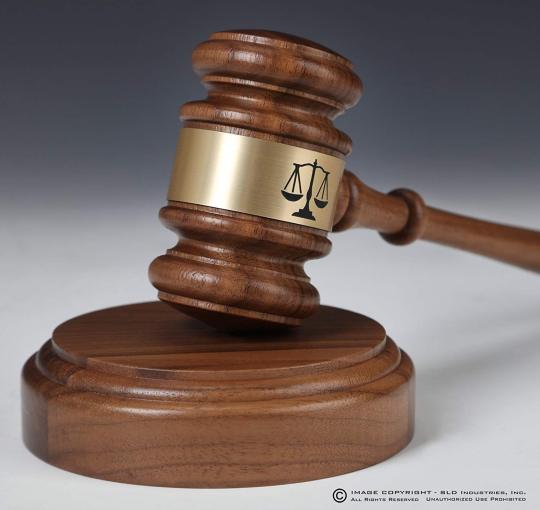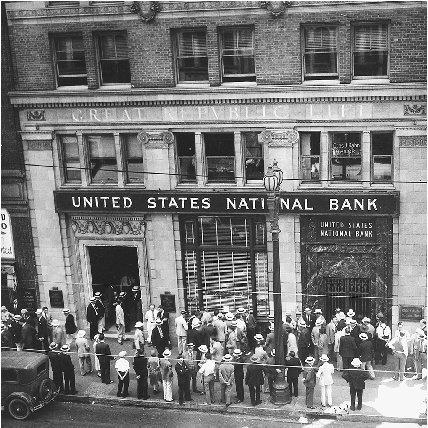#marbury v. madison
Explore tagged Tumblr posts
Text
Supreme Court Bracket
Remember that this is a silly Tumblr poll, and these two things are not actually in conflict. So don't get too heated in the notes.


Judicial Review. The case Marbury v. Madison declared a provision of the Judiciary Act of 1789 unconstitutional, thus preventing several late-term appointments by outgoing President John Adams from being seated under incoming President Thomas Jefferson. More importantly, the ruling established the principle of judicial review by which the Supreme Court can overturn, on the basis of unconstitutionality, laws passed by Congress and signed into law by the President. For this reason it is considered the single most important decision in American constitutional law.
Pre-Publication Censorship is Unconstitutional. The case Near v. Minnesota is a landmark United States Supreme Court decision that found that prior restraints on publication violate freedom of the press as protected under the First Amendment to the United States Constitution, a principle that was applied to free speech generally in subsequent jurisprudence. The Court ruled that a Minnesota law that targeted publishers of ''malicious'' or ''scandalous'' newspapers violated the First Amendment to the United States Constitution.
#xkcd#polls#tumblr polls#polls on tumblr#poll tournament#supreme court#law#us law#us politics#american politics#Supreme Court Round 3#Marbury v. Madison#Near v. Minnesota#Judicial Review#Pre-Publication Censorship is Unconstitutional#0x0v0x7
6 notes
·
View notes
Text
The very essence of civil liberty certainly consists in the right of every individual to claim the protection of the laws, whenever he receives an injury. One of the first duties of government is to afford that protection.
John Marshall, Marbury v. Madison
#supreme court#no justice no peace#death to america#civil rights#john marshall#marbury v madison#marbury v. madison#chief justice john marshall#1803#marshall 1803
0 notes
Text
you KNOW im thinking about them hard when i make a playlist about it
#oh seahicks……sighs#they match eachothers freak on god 😕😕#their other ship name would’ve been marbury but it’s giving judicial review . if you catch my drift#<- marbury v madison ass 😭😭😭#if you guys have any silly ship names that don’t involve their names like the fun ones bmc fans have TELL MEEEE
3 notes
·
View notes
Text
there's not an American on the planet who knows how their country works

0 notes
Text
so we're doing case summaries for my upcoming legal class this summer, and I'm the first one planned. And it's on Marbury v Madison. I'm gonna slay this shit.
1 note
·
View note
Text
SCOTUS would be crazy not to rule in favor of Smith.
I see the speed with which the Supreme Court has accepted Jack Smith’s request for a hearing on the issue of Presidential Immunity in this January 6 prosecution of Trump as a golden opportunity to cement their “supremacy”, and create a modicum of good will at the same time. It’s kind of a Marbury v. Madison moment for not only the court, but for the entire judicial system. Maybe they’ll cave,…
View On WordPress
#Clarence Thomas#Jack Smith#judicial review#Marbury v Madison#Presidential Immunity#RWNJ#SCOTUS#Supremacy#Supreme Court#Trump#US Constitution#US v Trump
0 notes
Text
Originalism is white supremacy and it is a choice.

"Originalism" is total BS.
#i've said it before and i'll say it again#nothing in the constitution requires this#marbury v madison was a mistake
3K notes
·
View notes
Text
"Limits of Power: How the U.S. Constitution Restrains Presidential Authority"
The U.S. Constitution does not actually grant the president unlimited power to do anything—even if it might harm the country. Instead, the Constitution establishes a framework of limited powers for the president, balanced by checks and balances from the other branches of government: Congress (legislative) and the judiciary. The founders of the United States, having experienced the dangers of monarchical power under British rule, were careful to avoid creating a single leader with unchecked authority. Let’s break down how this balance operates and examine the specific limitations placed on presidential powers.
1. Defined Powers in the Constitution
The Constitution specifies the powers of the president in Article II, which includes responsibilities like executing laws, commanding the armed forces, making treaties (with Senate approval), and appointing certain federal officials. These powers are broad in some respects, but they come with notable restrictions. For example, while the president is the "Commander in Chief" of the military, only Congress has the power to declare war and control military funding. This means the president cannot unilaterally engage the nation in prolonged warfare without congressional involvement.
2. Checks and Balances from Congress
Congress holds significant power to counterbalance presidential authority. It creates and passes laws, controls federal spending, and has the authority to impeach and remove a president. Impeachment serves as a critical check on the executive branch, allowing Congress to remove a president who is deemed to have committed “high crimes and misdemeanors,” such as abuses of power that could harm the country. Additionally, for treaties and key appointments (such as Supreme Court justices and cabinet members), the president needs Senate approval, preventing unilateral decision-making.
3. Judicial Review
The judiciary, particularly the Supreme Court, has the authority to review the constitutionality of presidential actions through a process called judicial review. Although judicial review is not explicitly stated in the Constitution, it has been a key feature of U.S. governance since the landmark case Marbury v. Madison (1803). This means that if the president enacts policies or takes actions that exceed constitutional limits or infringe on individual rights, the courts can invalidate those actions. This function limits presidential power and helps protect the nation from potential executive overreach.
4. Separation of Powers and Federalism
The principle of separation of powers means that the U.S. government’s authority is distributed among three branches, each with unique functions. The president may act decisively within the executive branch but cannot encroach upon the legislative or judicial branches' functions without facing potential legal or political repercussions. Federalism further diffuses power by dividing authority between the national and state governments, which means states can resist or challenge federal actions they view as unconstitutional or damaging to their interests.
5. Limitations Through Public and Political Accountability
Although not a constitutional mechanism, political accountability plays a crucial role. The president is elected by the people and thus must maintain public support to be re-elected or to maintain political legitimacy. A president acting in ways that clearly harm the country can face intense opposition from both the public and Congress. Public opinion, elections, and media scrutiny act as informal checks on presidential power, deterring actions that could lead to significant national harm.
Conclusion
In sum, the Constitution does not give the president unlimited power to act, particularly in ways that could harm the country. Instead, it establishes a system of limited, defined powers for the executive, checked by both Congress and the judiciary. The intent behind these checks and balances is to prevent any single branch or individual from wielding unchecked authority, thereby protecting the nation’s democratic integrity and the public's interests. The system is not foolproof, and debates over executive power continue, but the Constitution’s structure provides a framework aimed at minimizing the potential for presidential actions that could damage the country.
#politics#donald trump#potus#trump#democrats#republicans#democracy#joe biden#scotus#heritage foundation#traitor trump#trump 2024#fuck trump#president trump#republican#election#trump is a coward#democratic republic of the congo#democratic party#vote democrat#biden#walz#vote kamala harris#kamala harris#vote kamala#kamala 2024#kamala for president#fox news#harris#jd vance
16 notes
·
View notes
Text
″Any and all laws that are in conflict with the Constitution are invalid and of no force or effect.″ (The case of Marbury v. Madison was heard in 1803)
“When tyranny becomes law, rebellion becomes duty.”
Thomas Jefferson

A march toward Texas may be necessary…
62 notes
·
View notes
Text



hung out with a friend and did lectures to each other, my lecture was drawing shadow (and also the others) hers was about marbury v madison (tails loves judicial review)
21 notes
·
View notes
Text
the important thing about me is if theres a thing like Magic or Agora Nomic, a set of rules that purport to Do Things by virtue of existing. in particular the phrasing "the rules cause" or "then, y happens" and ESPECIALLY when these sorts if gamestate-machines treat a player as part of the operation they control. (in magic if you float mana after casting a spell, you announce how much is floating. not "you MUST announce how much is floating" it's written as a thing that the action causes to happen. the way a creature can enter the graveyard, the rules of magic can also compel you to open your mouth and make sounds.)
1) i love this a lot 2) dear god i want to torture this type of gamestate machine.
like. The magic ruleset has 400.12 which says basically. if you shuffle your hand into your library, this means shuffle all cards in hand into your library. this does not change the existence or properties of the zone" your hand"
and this is a bit of a marbury v madison thing right. obviously you cannot shuffle the abstract concept of "your hand zone" into a deck of physical cards. But by treating it as something even worth clarifying you kinda implicitly make a claim that something could change the fundamental nature of the zones, just not in that way.
its hubris!!! thats not how a game works! its a very strange way to write a ruleset. if you open a family board game it is not written like this!
"when a player who is it tags a player who is not it, first the player who is it is granted immunity from being the subject of tags, expiring 5 seconds after the start of the tag. then, in one effect, the tagging player, if they are still it, loses 'it' and the tagged player gains 'it' (so there is never a moment where neither or both players are it.) if for any reason this effect fails, or at the end of the effect there is not an 'it', the gamestate reverts to immediately before the tagging player gained immunity."
like, if you're writing a tag video game sure, but if you're playing tag the rules are "if you get tagged by it, ur it and they aren't, and if you disagree, argue until people get mad and won't play with you anymore".
its wonderful, is the point. the spirit of hilbert still fights on to this day. stay strong king, if we keep making definitions we'll encompass all reality sooner or later.
The first thing i tried to do in blognomic was to pass a resolution that would give a rule a physical location on the board. because imagine if there's a rule like "you can pick up any game object that is in a room you're in". a very reasonable rule for gold coins but just a delicious little disaster waiting to happen for other game entities. i want to hurt the gamestate machine. i want to hit it like a pin~ata
26 notes
·
View notes
Text
Supreme Court Bracket
Remember that this is a silly Tumblr poll, and these two things are not actually in conflict. So don't get too heated in the notes.


Judicial Review. The case Marbury v. Madison declared a provision of the Judiciary Act of 1789 unconstitutional, thus preventing several late-term appointments by outgoing President John Adams from being seated under incoming President Thomas Jefferson. More importantly, the ruling established the principle of judicial review by which the Supreme Court can overturn, on the basis of unconstitutionality, laws passed by Congress and signed into law by the President. For this reason it is considered the single most important decision in American constitutional law.
Bank of the United States. The case McCulloch v. Maryland established a broad interpretation of the ''necessary and proper'' clause, specifically finding that Congress could incorporate a Bank of the United States because the purpose was to help carry out Congress' explicit powers under Article I, section 8.
#xkcd#polls#tumblr polls#polls on tumblr#poll tournament#supreme court#law#us law#us politics#american politics#Marbury v. Madison#McCulloch v. Maryland#Judicial Review#Bank of the United States#0x0v0xf#Supreme Court Round 2
4 notes
·
View notes
Text
Charles P. Pierce: Hard after Thursday night’s television debacle, the Supreme Court leaped in to destroy the separation of powers and, as Elie Mystal pointed out on Xwitter, to engage in the biggest power grab since Marbury v. Madison. Through the now-customary 6–3 vote delivered by the carefully manufactured conservative majority, the precedent of Chevron v. Natural Resources Defense Council, aka the Chevron deference, is now as dead as Julius Caesar. And thus forty years of administrative law comes to a rude and abrupt end. The decision further illustrates that the dedication of the carefully manufactured conservative majority to corporate oligarchy is utterly unshakable, expertise—scientific and otherwise—be damned. Don’t believe me? Ask Chief Justice John Roberts, who wrote the majority opinion.
“Perhaps most fundamentally, Chevron’s presumption is misguided because agencies have no special competence in resolving statutory ambiguities. Courts do.”
So instead of career scientists deciding that the E. coli convention in your pork loin makes it inadvisable to eat, some twenty-two-year old law clerk fresh out of Regent University School of Law will. Bon appétit!
Getting rid of Chevron was one of the golden dreams of the country’s oligarchs and the judges and lawyers in their pay. Along with Roe v. Wade, it was number one on the conservative hit parade. But Justice Neil Gorsuch, whose concurrence is chock-full of the kind of tinhorn erudition so beloved by the carefully manufactured conservative majority, has perhaps a special reason to dance on Chevron’s grave. His mother, Anne Gorsuch, was hired by the Reagan administration to run the EPA—into the ground, apparently. From The Washington Post:
Anne Gorsuch—like Reagan then and President Trump today—was a firm believer that the federal government was too big, too powerful and too eager to issue regulations that restricted businesses. As a result, she slashed the EPA’s budget by nearly a quarter and, according to a Washington Post story at the time, boasted that she had reduced the thickness of the book of clean water regulations from six inches to a half inch. She filled various departments at EPA with subordinates recruited from the very industries the agency was supposed to be regulating.
By the end of her stint at EPA, Anne Gorsuch was under siege. A half dozen congressional committees were looking into allegations of mismanagement of the Superfund program, which was designed to clean up abandoned toxic waste sites around the country. The House voted to cite Gorsuch for contempt of Congress for failing to turn over subpoenaed records.
In addition to its dollar-store history, Gorsuch’s concurrence pretty much turns the concept of stare decisis into Silly Putty. Return with us now to those thrilling days of the seventeenth and eighteenth centuries, Justice Neil Gorsuch, your host.
"Other consequences followed for the role precedent played in future judicial proceedings. Because past decisions represented something “less than a Law,” they did not bind future judges....At the same time, as Matthew Hale put it, a future judge could give a past decision “Weight” as “evidence” of the law....Expressing the same idea, William Blackstone conceived of judicial precedents as “evidence” of “the common law.” And much like other forms of evidence, precedents at common law were thought to vary in the weight due them."
Matthew Hale died in 1676. He was a notorious witch hunter and once argued that the existence of laws against witchcraft proved that witches existed. What the hell he has to do with PFAS pollution or workplace safety in a chicken plant is beyond me. But we live in his universe now, and Neil Gorsuch got his own back for his mom.
https://www.esquire.com/.../supreme-court-chevron.../...
#Esquire magazine#corrupt SCOTUS#Radical SCOTUS#power grab#Chevron v. Natural Resources Defense Council#Chevron deference
23 notes
·
View notes
Text
"...the particular phraseology of the Constitution of the United States confirms and strengthens the principle, supposed to be essential to all written constitutions, that a law repugnant to the Constitution is void; and that courts, as well as other departments, are bound by that instrument.” ― John Marshall, Marbury v. Madison, 1803 “The prohibition is general. No clause in the Constitution could by any rule of construction be conceived to give to Congress a power to disarm the people. Such a flagitious attempt could only be made under some general pretense by a state legislature. But if in any blind pursuit of inordinate power, either should attempt it, this amendment may be appealed to as a restraint on both.”- William Rawle, A View of the Constitution 125-6 (2nd ed. 1829).
14 notes
·
View notes
Text
Legal analysts dive into new demand to remove Judge Cannon from classified documents case
Legal analysts dive into new demand to remove Judge Cannon from classified documents case (msn.com)
Judicial oversight is the process by which the judiciary examines the legality of actions taken by public or private entities to ensure that they comply with the law and the Constitution. This process is also known as judicial review.
Judicial review allows the judiciary to invalidate laws, acts, or governmental actions that are incompatible with a higher authority. The power of judicial review is considered an implied power derived from Article III and Article VI of the U.S. Constitution. The landmark decision of Marbury v. Madison established judicial review in the U.S. system of government.
Judicial oversight mechanisms also help to prevent fraud, waste, and abuse, and to promote compliance with ethical, statutory, and regulatory standards.
WHERE IS THE JUDICIAL OVERSIGHT COMMITTEE NOT STEPPING IN AND REMOVING HER?
6 notes
·
View notes